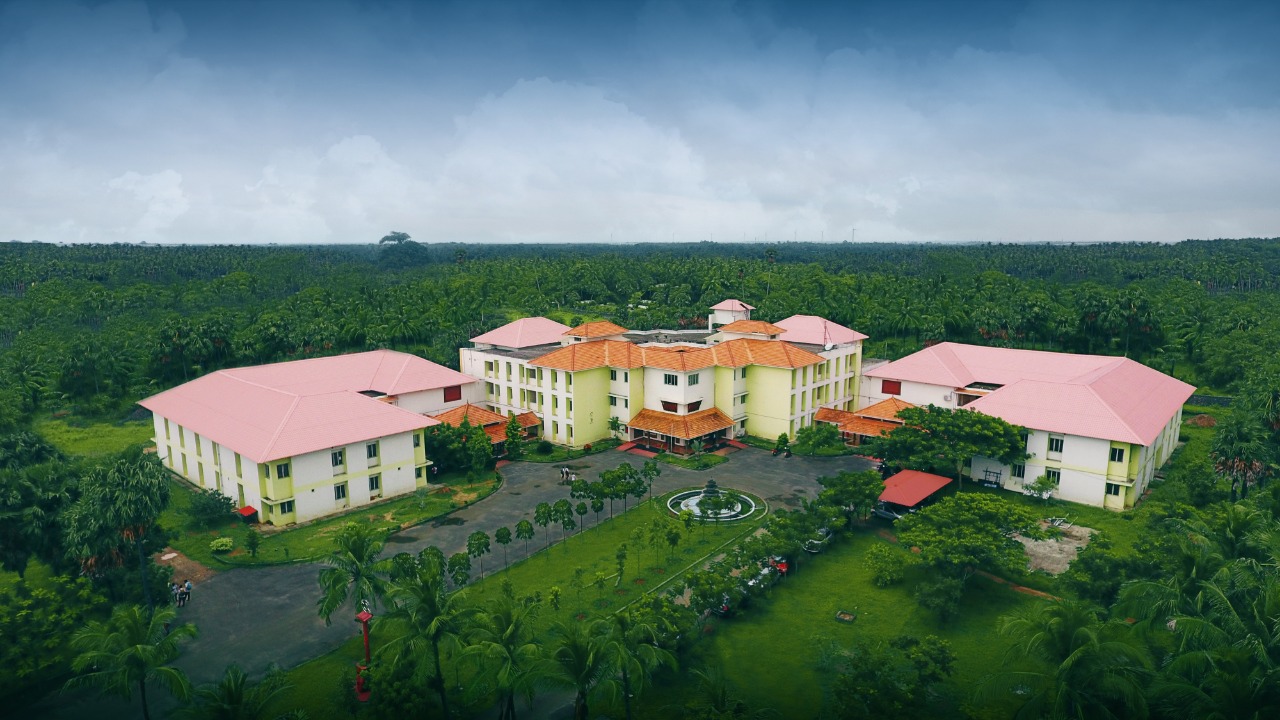Ahalia School of Engineering & Technology (ASET), Palakkad, an ISO 9001:2015 certified institution, is approved by All India Council for Technical Education (AICTE) and is affiliated to the A. P. J. Abdul Kalam Technological University, Kerala. We provide world-class technical education and training in the fields of Science, Engineering, Technology and Management to meritorious students from diverse socio-economic backgrounds. The college is located in a lush green campus with a beautiful view of the Western Ghats. It provides a peaceful and congenial atmosphere, ideal for students for their overall holistic development. Ahalia School of Engineering and Technology offers five Bachelor of Technology (B.Tech.) courses in Civil Engineering, Computer Science and Engineering, Electrical and Electronics Engineering, Electronics and Communication Engineering and Mechanical Engineering, that is complemented by various co-curriculur and extra-curriculur activities. ASET is one of the several institutions in Ahalia Campus.
Vision
Grow as a centre of learning and research, transforming students to professionals with knowledge , skill, competence, commitment, confidence and ethics to serve the society
Mission
To impart value-based education and promote curricular, co-curricular & extracurricular activities amongst students through extensive theoretical & practical training by qualified and experienced personnel using state-of the-art facilities.
To promote research and consultancy for institution development and contribution to the society
Programme Outcomes (POs)
PO 1: Engineering knowledge: Apply the knowledge of mathematics, science, engineering fundamentals, and an engineering specialization to the solution of complex engineering problems.
PO 2: Problem analysis: Identify, formulate, review research literature, and analyze complex engineering problems reaching substantiated conclusions using first principles of mathematics, natural sciences, and engineering sciences.
PO 3: Design/development of solutions: Design solutions for complex engineering problems and design system components or processes that meet the specified needs with appropriate consideration for the public health and safety, and the cultural, societal, and environmental considerations.
PO 4: Conduct investigations of complex problems: Use research-based knowledge and research methods including design of experiments, analysis and interpretation of data, and synthesis of the information to provide valid conclusions.
PO 5: Modern tool usage: Create, select, and apply appropriate techniques, resources, and modern engineering and IT tools including prediction and modeling to complex engineering activities with an understanding of the limitations.
PO 6: The engineer and society: Apply reasoning informed by the contextual knowledge to assess societal, health, safety, legal and cultural issues and the consequent responsibilities relevant to the professional engineering practice.
PO 7: Environment and sustainability: Understand the impact of the professional engineering solutions in societal and environmental contexts, and demonstrate the knowledge of, and need for sustainable development.
PO 8: Ethics: Apply ethical principles and commit to professional ethics and responsibilities and norms of the engineering practice.
PO 9: Individual and team work: Function effectively as an individual, and as a member or leader in diverse teams, and in multidisciplinary settings.
PO 10: Communication: Communicate effectively on complex engineering activities with the engineering community and with society at large, such as, being able to comprehend and write effective reports and design documentation, make effective presentations, and give and receive clear instructions.
PO 11: Project management and finance: Demonstrate knowledge and understanding of the engineering and management principles and apply these to one’s own work, as a member and leader in a team, to manage projects and in multidisciplinary environments.
PO 12: Life-long learning: Recognize the need for, and have the preparation and ability to engage in independent and life-long learning in the broadest context of technological change.


